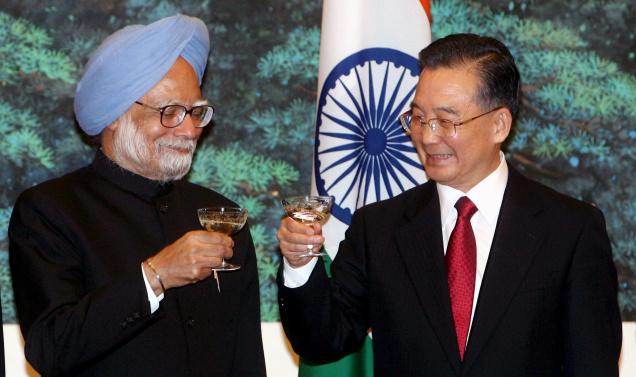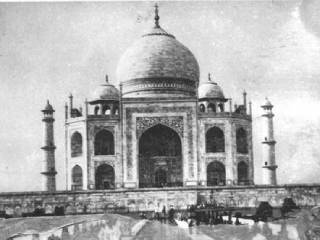Chaitra Krushnapaksha 11, Kaliyug Varsha 5115
By Sandhya Jain
 |
The current imbroglio over the Chinese incursion in Ladakh has given citizens an uneasy sense of déjà vu. Now officially admitted as a 19-kilometre ingress, Lt Gen Prakash Katoch says it is actually 30-kilometres. This evokes memories of veteran Parliamentarian Mahavir Tyagi’s famed face-off with Jawaharlal Nehru when China was found to have occupied Aksai Chin prior to the 1962 war.
The war, it must be shamefully admitted, was not launched by New Delhi to reclaim the lost strategic frontier, but by Beijing to ‘teach India a lesson’ and consolidate its gains. Nehru, exposed as a failed statesman who had virtually dismantled the Army because he feared a coup, lamely defended the Chinese land grab, “Not a blade of grass grows in Aksai Chin.” Amazing that a man whom secular historians project as an intellectual giant, should fail to appreciate the strategic significance of the region, especially after losing one-third of Jammu and Kashmir to Pakistan on account of fealty to Louis Mountbatten.
Enraged at this cavalier attitude, Mahavir Tyagi pointed to his bald pate and asked, “Nothing grows here… should it be cut off or given away to somebody else?”
As Spanish philosopher-poet George Santayana famously warned, “Those who do not learn from history are doomed to repeat it”. So it is with India. Notwithstanding the loss of Gilgit-Baltistan and access to Afghanistan and Central Asia on one side, besides portions of Pooch and Muzaffarabad provinces (which became Azad Kashmir), and Aksai Chin and access to the Karakorum Highway on the other, New Delhi has been willing to discuss something as dangerous as withdrawal from ever more critical Siachen Glacier.
Last year, a covert agreement was almost clinched with Pakistan on Sir Creek, as a prelude to de-militarisation of the glacier. It was scuttled when Gujarat Chief Minister Narendra Modi raised uncomfortable questions, to the chagrin of the Prime Minister.
Now, the vulnerable frontiers are in fresh danger, and in true Nehruvian fashion, the UPA is in denial. That zero response remains government strategy can be seen from the fact that the effete Defence Minister AK Anthony has nothing to say on this serious erosion of national sovereignty, though his Ministry ran an effective leak-a-day programme during the ugly spat with Army Chief VK Singh. Instead, we have serial inanities from Foreign Minister Salman Khurshid under whose watch India’s relations with all neighbouring countries have taken a severe nose-dive.
Sardar Patel was the only national leader with the prescience to envisage the Chinese threat. In a letter to Jawaharlal Nehru, dated November 7, 1950, five weeks before his death, Patel shared his misgivings in the context of Tibet. Expressing doubts over the correspondence between the External Affairs Ministry and the Indian Ambassador in Peking (now Beijing) and the latter’s engagement with the Chinese Government, Patel asserts that China “has tried to delude us by professions of peaceful intention”.
In reality, he says, during the period covered by this correspondence, China “must have been concentrating for an onslaught on Tibet”. The tragedy, says Patel, is that the Tibetans relied on India, which failed them. In fact, at the time Patel was writing, there was a fear that New Delhi would not be able to rescue even the Dalai Lama.
 |
Despite this, the then Indian Ambassador was at pains to find an explanation or justification for Chinese policy and actions. This is eerily reminiscent of Indian diplomacy to this day, vis-à-vis nations that demonstrate power. Patel dismisses Beijing’s claims of Anglo-American machinations in Tibet, regarding which ample confirmations have come from the CIA itself, but this cannot justify the annexation of Tibet. His perception of the Communist mentality of “whoever is not with them being against them” is quite acute.
Patel laments that outside the Russian camp, India alone has been championing the cause of Chinese entry into UN and securing Americans assurances on Formosa. Despite such appeasement and a China-friendly ambassador to Beijing, the latter regards India with suspicion and “a little hostility”. Patel expresses strong resentment at the “summary way it [China] disposes of our protest against the entry of Chinese forces into Tibet but also in the wild insinuation that our attitude is determined by foreign influences. It looks as though it is not a friend speaking in that language but a potential enemy”.
Today, with Chinese troops deep inside Indian territory, the indifference of the powers that be is scandalous. We have a so-called China hand in the National Security Advisor, but there is unmistakable indifference to the crisis in New Delhi, and thinly disguised irritation at those who continue to raise the issue in the public forum. The seething anger in the armed forces – expressed partially by veteran officers and strategic thinkers – is entirely understandable.
Patel spells out the situation in black and white – Tibet has disappeared, and the “expansion of China [is] almost up to our gates”. Historically, India seldom worried about the north-east frontier as the Himalayas were regarded as impenetrable and Tibet was friendly. China was divided with numerous domestic problems.
Yet it is pertinent that the 1914 convention that (British) India entered into with Tibet was not endorsed by China. India mistook Tibetan autonomy as extending to independent treaty relationship; Chinese interpret suzerainty differently. As Patel anticipated, they disowned all stipulations Tibet entered into with India in the past half century as soon as they become united and strong.
Patel was right that “Communism is no shield against imperialism and that the communists are as good or as bad imperialists as any other”. Chinese ambitions, he warned, cover not only “the Himalayan slopes on our side but also include the important part of Assam. They have their ambitions in Burma also. Burma has the added difficulty that it has no McMahon Line round which to build up even the semblance of an agreement”.
Thus, for the first time in centuries, India’s defence has to cover two fronts simultaneously: “Our northern and north-eastern approaches consist of Nepal, Bhutan, Sikkim, Darjeeling and the tribal areas in Assam. From the point of view of communication, there are weak spots. Continuous defensive lines do not exist. There is almost an unlimited scope for infiltration…”
Patel felt India must prepare a military and intelligence appreciation of the Chinese threat to India; the forces necessary to guard important routes or areas likely to be disputed; long-term consideration of our defence needs, with emphasis on assured supplies of arms, ammunition and armour; reconsideration of support to China’s entry into the UN. He wanted India to take a stand on China’s role in the Korean War.
Further, he suggested strengthening the entire northern and northeastern frontier – Nepal, Bhutan, Sikkim, Darjeeling and the tribal territory in Assam, and the border areas and States flanking those areas such as Uttar Pradesh, Bihar, Bengal and Assam. He said all infrastructure, air, road, rail, and wireless communications, be graded in these areas, something we have grossly neglected to this day.
As is well-known, Nehru capitulated to Beijing and withdrew the Indian mission at Lhasa and trade posts at Gyangtse and Yatung and of course the forces guarding these trade routes. And our overall defence preparedness has been whittled down to outsourcing military preparedness in lieu of kickbacks.
Source : Niti Central

 Mizoram: EC accepts Christians’ demand to defer counting on Sunday, but what if Hindus had made a similar demand?
Mizoram: EC accepts Christians’ demand to defer counting on Sunday, but what if Hindus had made a similar demand? Sign Petition : Immediately repeal the draconian and unconstitutional ‘The Waqf Act, 1995’
Sign Petition : Immediately repeal the draconian and unconstitutional ‘The Waqf Act, 1995’ Shriram : Sri Lanka’s saviour
Shriram : Sri Lanka’s saviour Why it is so cool to malign Hindu gods and goddesses, but it may not be that easy now
Why it is so cool to malign Hindu gods and goddesses, but it may not be that easy now Shocking Truth of Taj Mahal exposed by Late Pujya P. N. Oak
Shocking Truth of Taj Mahal exposed by Late Pujya P. N. Oak How are Hindus treated in states where they are in a minority?
How are Hindus treated in states where they are in a minority?